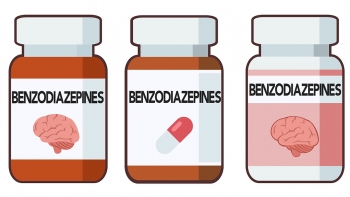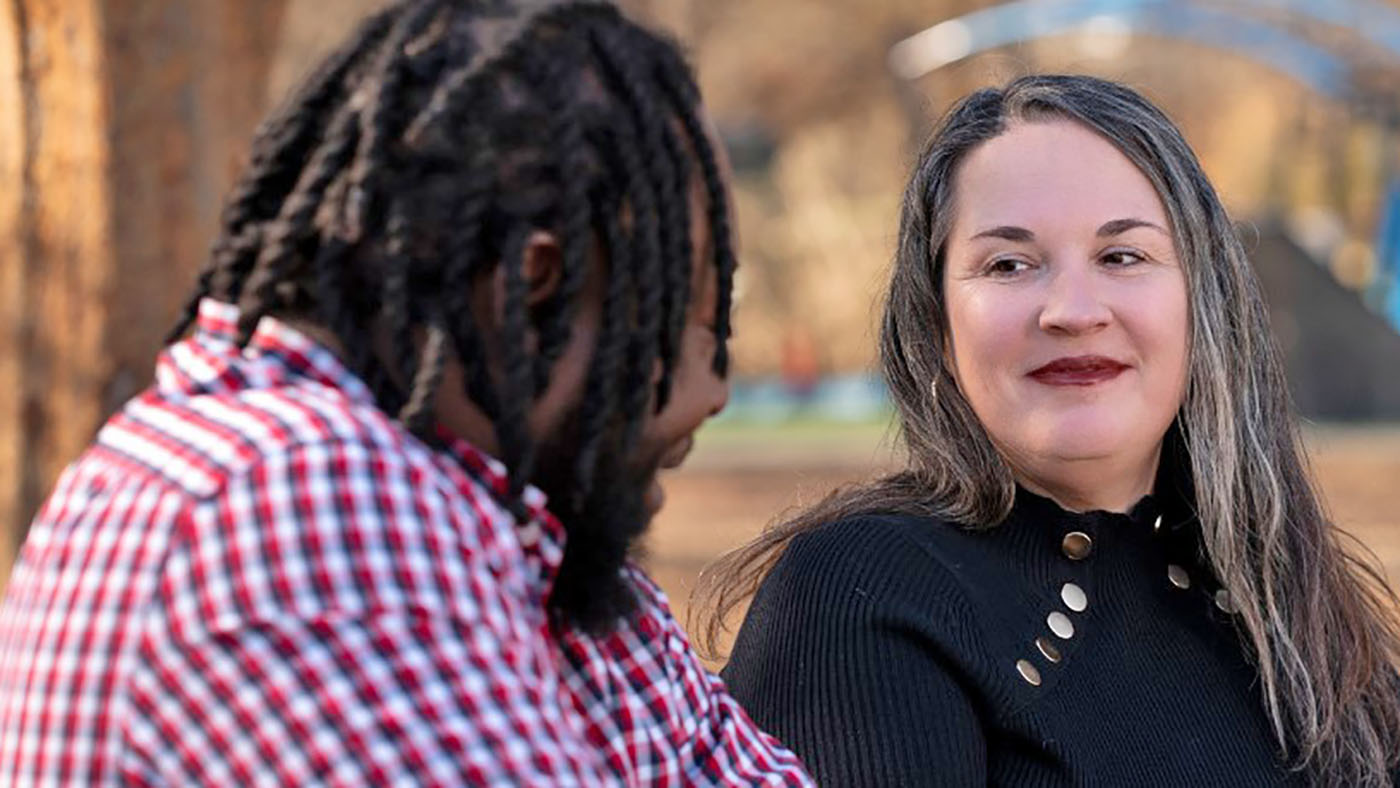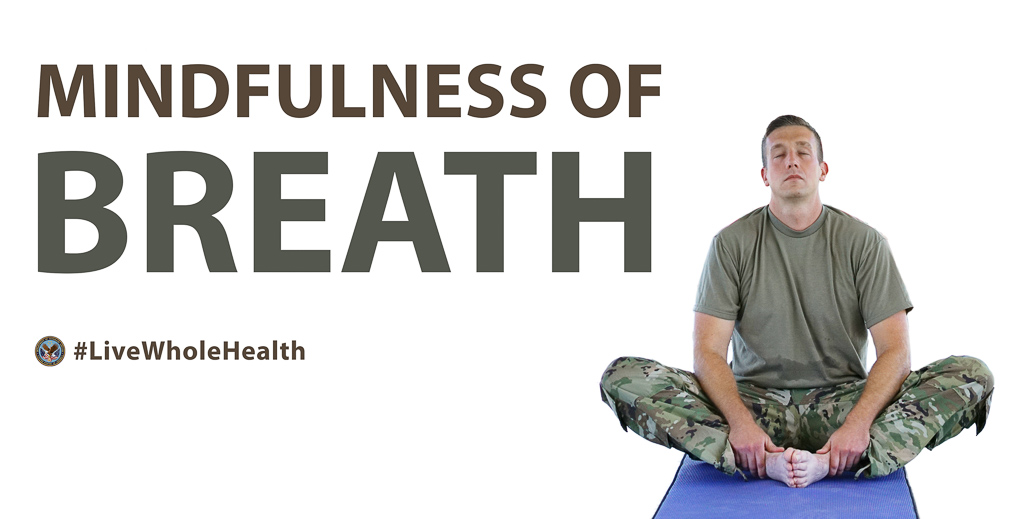VA wants to reduce the number of benzodiazepines (BZDs) prescriptions from community providers to Veterans, especially seniors aged 65 older.
Benzodiazepines are a class of drug used to treat certain conditions, such as anxiety, with medications like Xanax and Ativan. Risk of these medications for older adults include falls, confusion, or contributing to lethal overdoses.
This reduction is part of the Psychotropic Drug Safety Initiative, which began in 2013.
“It would be wrong to say, ‘No one should be on benzodiazepines.’ However, you want to minimize use as much as possible, in particular for older adults because of the risks,” sayid Dr. Donovan Maust.
From 2013 to 2017, one study noted that BZD prescribing in VA to older Veterans was cut in half.
Veterans over 65 also use Medicare Part D for prescriptions
However, Veterans who are at least 65 years in age also qualify for Medicare Part D and can use this program to have prescriptions filled outside of VA sources. These Veterans are considered to be dually enrolled – in VA and Part D.
Researchers began to consider if there was a true decline in the BZD prescriptions to older Veterans or if these Veterans were using their Part D prescription plan to acquire BZDs from outside sources, making up for the difference in VA’s decline.
A recently published study examined this exact issue. The study is called Benzodiazepine Prescribing from VA and Medicare to Dually Enrolled Older Veterans: A Retrospective Cohort Study.
The study was led by Dr. Maust of the Center for Clinical Management Research at the VA Ann Arbor Healthcare System. The study examined nearly two million Veterans aged 65 or older who were enrolled in VA and Medicare Part D from 2013 to 2017.
Study showed prescription numbers dropped
Overall, the study results showed positive improvements. Looking at just prescriptions from VA, BZD prescriptions dropped from about 5% of the age-65+ population to just 3%. When Medicare Part D prescriptions were also included, Veterans receiving BZD prescriptions declined from 10% of age-65+ population to just under 8%.
“This is good news. The drop that seemed to be happening based on VA prescribing alone really did happen,” Maust said. “Community prescribers didn’t just replace them.”
The study also examined the source of BZD at each individual VA facility. The study will determine whether they were prescribed by VA, by Part D community providers, or both.
At most VA facilities, older Veterans were more likely to receive their BZDs through Part D than from VA.
For example, from July 2016 to June 2017, 37% of Veterans acquired their medications from VA only. Almost 11% received prescriptions from VA and Part D, and the remaining 52% used Part D only.
Community providers primary source of BZDs
“If you really want to address prescribing these medications to Veterans, you have to start thinking about what’s happening in the community,” Maust added. “It appears that the primary sources of BZDs are community providers.”
These findings are especially critical after the implementation of the VA MISSION Act of 2018. That act expanded criteria that allowed Veterans to access community health care providers outside VA.
The study notes that, “While the ability to access non-VA care ideally would improve the quality of care Veterans receive, dual-system use increases the potential for poorly coordinated care and has been associated with potentially inappropriate prescribing.”
Need to engage community providers to minimize use of BZDs
There’s positive news that BZD prescriptions are on a true decline between VA and community sources. Still, it’s vitally important that clinicians seeing Veteran patients continue to check state prescription drug monitoring program databases and complete a thorough medication review.
“This effort VA has done to improve prescribing to older Veterans and minimize use of these medications looks like it has worked,” Maust said. “They’re not just driving people out into the community. Overall, the goal was to reduce prescribing to Veterans and that has succeeded. But it is also true that a lot of Veterans are receiving benzodiazepines prescriptions through community sources. As VA continues to promote high-quality prescribing, it will be important to think about how to engage community providers in that effort.”
For information on how Benzodiazepines are used for PTSD: https://www.ptsd.va.gov/professional/treat/txessentials/benzos_va.asp.
Related blog post: VIONE changes the way VA handles prescriptions.
Topics in this story
More Stories
You don’t need to know complicated terms or lots of data to talk to someone about suicide. You just have to show concern.
VA’s Office of Connected Care helps Veterans in rural areas receive care through telehealth and other virtual tools.
Discover the power of your breath! Explore how mindful breathing can bring peace, ease your mind and enhance clarity in this week's #LiveWholeHealth video.








I know what my body and my mind need. The VA barely recognizes my disability and the side effects that go with it. I treat my symptoms outside the VA by paying cash for my scripts. I don’t abuse the meds, I take exactly what I am prescribed. The VA needs to fix itself first before worrying about this.
Thanks Patti, your comments are spot on. Many vets cannot get the metal health care they need from a broken system. For unkown reasons, the folks in upper positions of the V.A. mental health system just do not get it. Thank goodness the private sector does not have it’s hands’ tied or get on bended knee to follow some poorly installed rules.
Just thirty 5mg pills which would last nearly a year made all the difference in quality of life. Half a pill when needed would give me over a week of relief at times.
VA says these reductions were done and will be done on individual evaluations but they aren’t. The only evaluation going on is the number each VA system is prescribing not how it it is doing so. You can’t report providers for anything anymore if you have PTSD because the majority have figured or been told to do a disruptive behavior report against any veteran who complain, it kills
any greavences the veteran may have filed.
Dr. Maust and the V.A. need to stay in their own lane. The V.A. will throw bucket loads of ssri’s at veterans with ptsd and use cbt as their gold standard for treating anxiety and ptsd. Both of the latter mentioned treatments have failed for many veterans. Benzos have been around since the late 1960’s and work very well for many veterans who cannot master mind over matter therapy. V,A. mental health has always been an all or nothing operation when it comes to working with vets. Fix the V.A. mental health system first before you go meddling in the private sector. Or better yet, just leave us to choose what we believe helps us and lets us live as normal a life as possible.
There are some people who only use a small amount perhaps .5mg on ‘as a needed basis’ to combat social anxiety in certain/rare situations, or for the ability to sit calmly during blood draws, dental appointments, and whenever someone was up close and personal for extended periods.
Their use is legitimate and allows the patient a sense of normalcy in stressful situations.
VA, chose wisely your approach and the changes you wish to make. One size does not fit all.
The key point of this article is, “ “It would be wrong to say, ‘No one should be on benzodiazepines..” I was refused all psychiatric treatment for my service connected conditions because I was taking 0.25 mg twice daily with Fluvoxamine 50mg daily, because I was told by the psychiatrist during a 15 minute telephonic visit this past January because “I would quit breathing in my sleep and not wake up.” This after having kidney cancer, throat cancer, TB. kidney failure, and PTSD for fear of dying from my Naval service.
What about those of us who take Clonazepam pretty much as needed, and have done so for decades? And for whom nothing else works or works as well?
What happens to US?
Every fifteen or twenty years, we have to go through this nonsense.
WHY??
My son was injured in the Gulf War; when he came home he was given all kinds of medication…pills to wake him up, pills to put him asleep and he was not monitored at all!! As his mother I was infuriated with the V A because he became addicted to Benzodiazepines (which is one of the worst drugs there are for an addict) and for years he struggled physically, emotionally and mentally. He passed away November 2004, and he no longer suffers this horrible disease and I know he’s in the arms of Jesus. I can truly say there was never one good experience he had with the V A!!! I agree with the last comment it is the V A that got these veterans hooked on narcotics and Benzodiazepines, and now they want to tell the outside providers how to treat the Veteran. Stay out of it V A , you had your chance and you failed miserably!!!
Well, this almost makes it sound like veterans are intentionally seeking BZD from both the VA and Community providers. Maybe they are. Why? Because the VA got them hooked on these drugs to begin with and then suddenly said “oops, we can’t prescribe the amount we’ve got you hooked on”. The VA has a track record of over-medicating veterans and getting them hooked on the major pain meds. The VA has in the past been drug dealers and now is trying to say “oh no, we can’t do that”. We’re not only going to control what we do but we’re also going to tell community providers and pharmacies what they can and can’t prescribe and how much. After reading the article about VIONE and especially reading the comments from veterans, what can I say? The VA messed up big time, won’t admit to it and now the VA refuses to fill prescriptions in a timely manner so veterans end up off meds they need for their health conditions which are not necessarily pain issues. Why is the VA now intentionally trying to KILL veterans by refusing them care or medications they actually need to stay alive? It’s called murder and any family who believes their loved one was killed by the VA because of their actions or inactions needs to sue the VA.